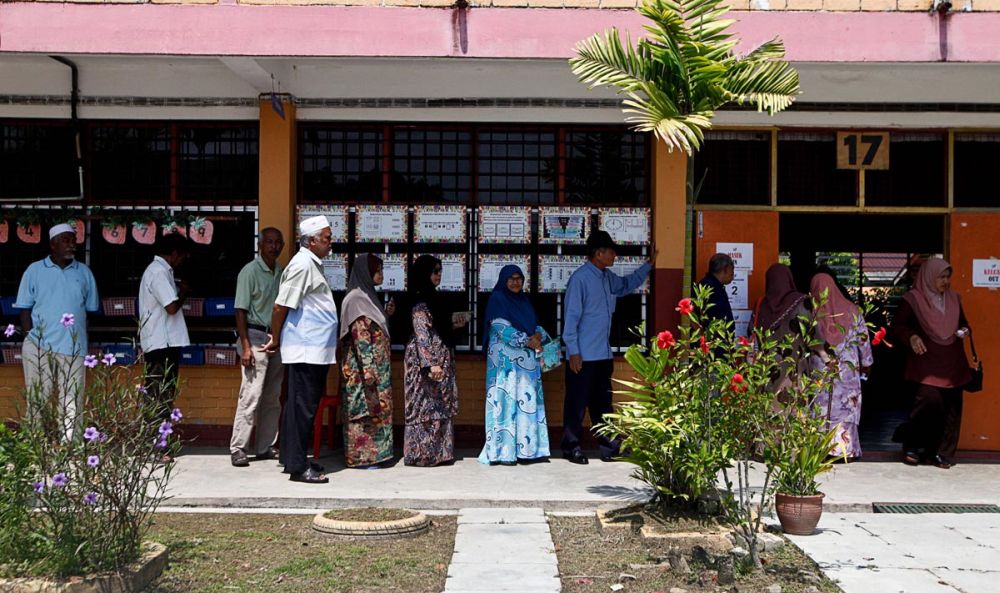KUALA LUMPUR, June 24 — After Gerakan quit Barisan Nasional (BN) yesterday, the federal Opposition and Opposition in many peninsular states are now left with only Malay representatives from Umno and PAS.
Geopolitical expert Azmi Hassan said Malay nationalist party Umno and Islamist party PAS had their own distinctive strengths and could be a formidable force, but it would not be preferable if political fault lines were delineated according to race.
“The GE14 results clearly demonstrated the race-laced political situation and if Gerakan, MCA and MIC follow suit, this would not be the Malaysia Baru touted by the media and the people,” he told Malay Mail.
“For now, it is good for Umno and PAS, since the Malays are behind these two parties. Based on the Malay votes, only 25 per cent went to PH... PPBM still has a long way to go in terms of gaining Malay support if Umno and PAS are used as the yardstick,” he said, referring to Pakatan Harapan and Parti Pribumi Bersatu Malaysia respectively.
From a coalition of 13 component parties in the peninsula, Sabah and Sarawak, BN is now left with the original structure of its post-Merdeka predecessor, the Alliance, comprising Umno, MCA and MIC.
BN’s former component parties from Sarawak, which currently govern the state due to their victory in the 2016 state election, left to form their own coalition after the 14th general election that saw BN lose federal power for the first time.
In the peninsula, MCA and MIC only have three Parliament seats between them. MCA has two state seats in Perlis and Pahang — the only two states under BN control — while MIC has three state seats in Negri Sembilan and Johor. Gerakan did not win a single federal or state seat.
Azmi said Gerakan leaving BN would be good for Umno and that its component allies, MCA and MIC, should follow suit since the strength of Umno lies with the Malays. Umno remains the biggest party in Parliament with 54 seats.
Though Umno and PAS would have difficulty appealing to non-Malay voters, Azmi said the Malays will be with the Opposition until the time comes when Umno transforms into a stronger party.
“With Gerakan, and possibly MCA and MIC, no longer with Umno, and PAS known to be lacking a multi-racial stance, it is going to be difficult for the two with non-Malay voters as they have PH to depend on.
“However, the ugly truth is that Malays will be in the Opposition bloc until Umno is stronger and capable of forming another coalition similar to BN,” he said.
Umno needs to grow beyond race
However, Universiti Kebangsaan Malaysia (UKM) associate professor Faisal Hazis argued it is now a critical time for Umno to choose a progressive leader like former youth and sports minister Khairy Jamaluddin to captain the floundering party.
“In the last election, PAS won by invoking the race and religious card, so they will be consistent on that narrative. Umno’s (stance), however, depends on who is going to win the party elections.
Hopefully, it will be Khairy who is more inclusive and willing to open the party to other races,” Faisal said.
“That should be the way forward, although we are heading towards Malaysia Baru and hopefully, racial- and religious-based politics will be moderated. That doesn’t mean these two types of politics will be wiped out. They will still be key features in Malaysian politics.
“But what we should hope is they will be pushed in favour of a more inclusive narrative,” he added.
He explained further that there will always be extremist bodies that will become the blackguard of race and religious issues, but in light of Malaysia’s rejection of such narratives during the May 9 election, Faisal believes their impact on mainstream politics will be reduced.
Although PH won federal power and most other states in the peninsula, the coalition has zero representatives at either federal or state level in Kelantan and Terengganu, both of which are governed by PAS.
Pakatan Harapan’s political dominance can be detrimental
For Faisal, the greater concern lies in the lopsided power structure where a weak and fragmented Opposition has allowed the PH government dominance in the political arena.
He warned that if the Opposition does not get its act together, PH’s dominance would become detrimental to the country as it leaves the nation vulnerable to a power structure akin to BN.
“I think that’s why there is a need to push for reforms so we can move forward with institutional reforms. Then we can check this government and provide checks and balances for it.
“With Gerakan leaving BN, we basically see the dismantling of the Opposition. If that is the case, we don’t expect to have a credible or strong alternative Opposition in a short period of time.
“In order for democracy to function properly, we need a strong alternative to provide checks and balances and keep the ruling party in check,” said Faisal.
Political analyst Oh Ei Sun agreed with Azmi regarding Umno’s power base and pointed out that together with PAS, both parties retain up to 70 per cent of Malay votes, indicating their formidable political influence.
However, the senior advisor at Pacific Research Centre also echoed Faisal’s views, in that the two Malay-based Opposition parties need to buck up when it comes to convincing non-Malay voters to back them.
“What is happening is mostly a peninsular phenomenon… but Umno and PAS have to do a better job convincing the non-Malays that they deserve a chance to be back in power.
“As for PH, they have to do a better job at convincing the Malay majority that they deserve another five years,” he told Malay Mail.



















